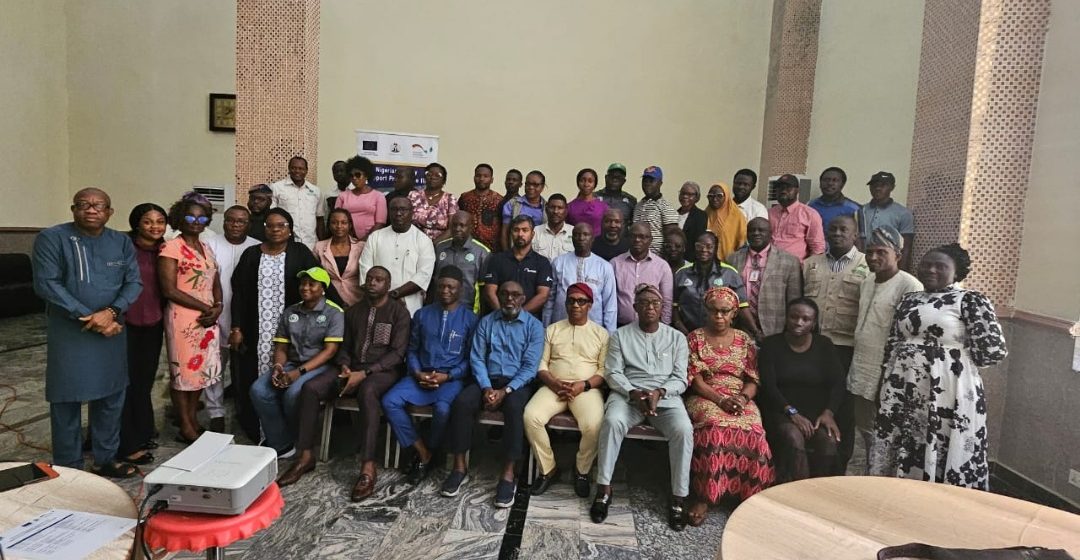Residents of Ogijo, a community in Ogun State, South West Nigeria will soon enjoy a breath of fresh air as the National Environmental Standards and regulations Enforcement Agency (NESREA) and her partners are putting finishing touches on a plan to evacuate hazardous Used Lead-Acid (ULAB) slag from the community.
The exercise was the focus of a Stakeholder Engagement Meeting on the strategy for managing Used Lead-Acid Battery (ULAB) slag in Ogijo, a community which is home to numerous battery recycling facilities. Slag, is a hazardous by-product of smelting used lead-acid batteries, and is primarily made up of iron and lead oxides, along with impurities from battery casings, electrolytes, and additives. It is classified as hazardous waste under both national and international environmental regulations.
Highlighting the danger to which the residents are exposed, the Director General of NESREA, Prof. Innocent Barikor said, “Ogijo has unfortunately emerged as a hotspot for the unregulated and improper disposal of slag. The continued dumping of this material in Ogijo poses serious risks to the environment and public health, particularly for vulnerable populations such as children.”
Prof. Barikor recalled his promise earlier in the year to address the environmental concern in Ogijo, saying, “NESREA has commenced the full operationalization of the National Environmental (Battery Control) Regulations 2024. The Agency has also developed an intense compliance monitoring and enforcement framework for Ogijo and its environs to stem the tide of this ravaging pollution and prevent other Ogijo scenarios that are waiting to happen.”
“The goal of today’s Slag Evacuation Programme in Ogijo is not an isolated initiative. It forms part of NESREA’s broader strategy to sanitise the battery recycling sector, protect vulnerable populations, and accelerate Nigeria’s transition to a resilient and circular economy”.
“This programme will formalize a strategic partnership that aligns regulatory oversight with industrial responsibility and sustainable environmental practices, and initiate a Memorandum of Understanding (MoU) which will outline a clear framework for the collection, transportation, treatment, and co-processing of slag in a manner that safeguards both people and the planet,” he added
Earlier in his welcome address, the Ogun State Commissioner for Environment, Ola Oresanya described the gathering as a communal effort aimed at exploring innovative technologies that can convert hazardous slags into useful material, thereby reducing waste and promoting Circular Economy Principles.
He also disclosed that the state environmental protection agency had began implementing standardized procedures for the collection, storage and transportation of slags by accredited hazardous waste collectors.
Present at the event supported by GIZ Nigeria were the community leaders, Federal Ministry of Environment, Ogun State Ministry of Environment, Ogun State Environmental Protection Agency (OGEPA), Alliance for Responsible Battery Recycling (ARBR), Sustainable Research and Action for Environmental Development (SRADeV ) and representatives of various facilities in the community.
Nwamaka Ejiofor
Assistant Director (Press)
4th September, 2025



Leave a Reply